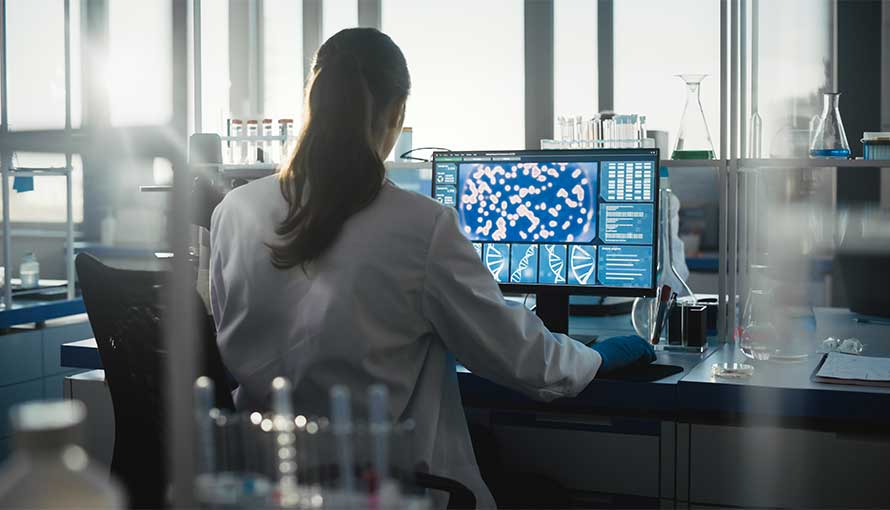Hereditary Cancer Syndromes

Inherited genetic mutations contribute to the development of approximately 10% of all cancers. Scientists in the general medical community have linked specific gene mutations to more than 50 hereditary cancer syndromes, which are conditions that may increase the risk of developing certain tumors. However, it is important to note that even if a cancer-predisposing gene mutation runs in a family, not everyone who inherits the mutation will necessarily develop cancer.
A few examples of genes that can mutate and cause a hereditary cancer syndrome include:
BRCA1 and BRCA2
Inherited mutations in the BRCA1 and BRCA2 genes have been definitively linked to hereditary breast and ovarian cancer syndrome, which increases the lifetime risk of breast and ovarian cancer in women. BRCA1 and BRCA2 gene mutations also increase the risk of pancreatic cancer, melanoma, prostate cancer and breast cancer in men.
TP53
A gene that normally provides the body with a blueprint for producing a certain protein (p53) that suppresses tumor growth, TP53 is the most commonly identified mutated gene in all types of cancer. Essentially, the mutation interferes with the gene’s ability to function properly. Germline mutations in TP53 can also cause Li-Fraumeni syndrome, a hereditary cancer syndrome that increases the risk of soft tissue sarcomas, breast cancer, leukemia, lung cancer, brain tumors, adrenal gland cancer and Von Hippel-Lindau disease.
PTEN
PTEN is another gene involved in the production of a tumor-suppressing protein. PTEN mutations are associated with Cowden syndrome, a hereditary cancer syndrome that increases the risk of breast, thyroid and endometrial (uterine) cancers.
MLH1, MSH2, MSH6 and PMS2
Lynch syndrome, or hereditary non-polyposis colorectal cancer syndrome, is caused by mutations in the DNA mismatch repair genes—MLH1, MSH2, MSH6 and PMS2—which normally recognize and repair mismatched nucleotides in otherwise complementary-paired DNA strands. Lynch syndrome increases the risk of early-age-onset colorectal cancer, extracolonic tumors and endometrial (uterine) cancer.
APC
The APC gene is also involved in the production of a tumor-suppressing protein (APC), which normally keeps cells from growing and dividing too quickly. APC mutations are linked to familial adenomatous polyposis (FAP), a hereditary colon cancer syndrome in which numerous precancerous colon polyps form in the gastrointestinal tract.
Talk With a Specialist
If you have an inherited syndrome that increases your risk of cancer, or if you would like to learn more about hereditary cancer syndromes in general, you are welcome to request an appointment with a specialist in the Genehome Clinic at Moffitt Cancer Center. To do so, call 1-813-745-8123 or email us at Genehome@Moffitt.org. Our expert team coordinates genetic testing and high-risk cancer surveillance for individuals and families with hereditary cancer syndromes and also provides individualized education and counseling on the specific gene mutation they carry.
Genetic Counseling and Genetic Testing
